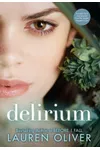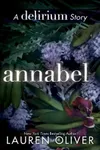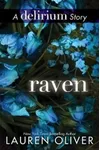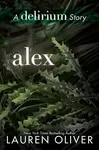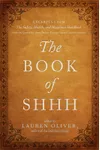Step into the hauntingly beautiful world of Delirium, where love is outlawed as a dangerous disease! Lauren Oliver’s dystopian trilogy sweeps readers into an alternate United States, blending heart-pounding romance, rebellion, and a chilling society that fears emotions. Follow Lena Haloway as she uncovers the truth behind the 'cure' for love and fights for the freedom to feel.
This young adult series captivates with its unique premise and emotional depth, inviting readers to question conformity and cherish the messy, beautiful chaos of love. Ready to dive into a world where feelings are forbidden? Let’s explore Delirium’s origins, story, and lasting impact!
How Delirium Began
Lauren Oliver crafted Delirium after a spark of inspiration at the gym, blending a Gabriel García Márquez essay claiming all stories are about love or death with a news report about a pandemic. Having explored death in her debut, Before I Fall, Oliver turned to love, imagining it as a disease called Amor Deliria Nervosa. Published in 2011 by HarperCollins, Delirium kicked off a trilogy that became a New York Times bestseller, praised for its poetic prose and bold concept.
Oliver’s vision was to create a dystopian Portland, Maine, in 2091, where a totalitarian government enforces a surgical cure for love at age 18. Her world-building and emotional storytelling drew readers into a society both terrifying and relatable, setting the stage for Lena’s journey.
The Heart of Delirium
The Delirium trilogy comprises three main books—Delirium (2011), Pandemonium (2012), and Requiem (2013)—plus companion stories like Hana, Annabel, Raven, and Alex. In Delirium, Lena Haloway eagerly awaits her cure, believing love destroyed her mother. But meeting Alex, a rebellious boy from the unregulated Wilds, sparks forbidden feelings and unveils the government’s lies. Pandemonium follows Lena’s life in the Wilds, introducing new allies and challenges, while Requiem escalates the rebellion against the cure, exploring love’s complexities across relationships.
The series shines with themes of freedom, individuality, and the power of emotions. Oliver’s lyrical style paints a vivid dystopia, from Portland’s electric fences to the wild, untamed forests. Love, portrayed as both exhilarating and dangerous, drives the narrative, while rebellion against control echoes classics like 1984. Lena’s growth from a compliant teen to a fierce fighter resonates with readers, blending romance with high-stakes action.
The companion stories add depth, offering perspectives from Lena’s friend Hana, her mother Annabel, and others. Fans praise the series for its emotional rollercoaster, though some note pacing issues or wish for a more conclusive ending in Requiem.
Why Delirium Resonates
Delirium stands out in the YA dystopian wave of the 2010s, alongside The Hunger Games and Divergent, for its fresh take on love as a societal threat. Its exploration of autonomy and resistance speaks to teens and adults alike, reflecting real-world struggles against conformity. The series earned starred reviews from Kirkus and School Library Journal, and its fanbase cherishes its heartfelt characters and thought-provoking premise.
Though a planned TV adaptation didn’t materialize, Delirium’s legacy endures through its devoted readers and Oliver’s evocative storytelling. It remains a must-read for dystopian fans, inviting reflection on love’s role in our lives and the courage to defy oppressive systems.
- Publication Years: 2011–2013
- Books: 3 main novels, 4 companion stories
- Setting: Portland, Maine, 2091
- Awards: Named a Best Book of the Year by USA Today, Kirkus, and others
Grab Delirium and dive into a dystopian world where love is the ultimate rebellion! Let Lena and Alex’s story sweep you away into a thrilling fight for freedom and feelings.
